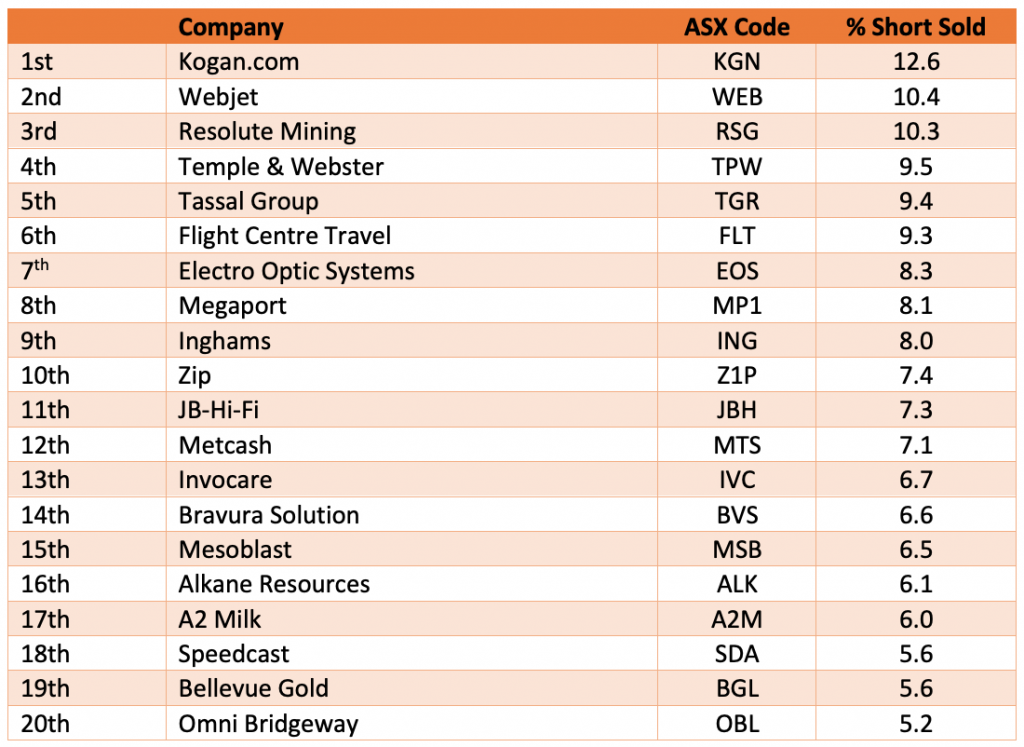

Short selling is one of the scourges of the Australian share market. It is grossly unfair because only hedge funds and the “big-end” of town can do it. Retail investors aren’t allowed. Further, the behaviour of activist short sellers in publishing false and misleading “research reports” which are designed to encourage others to sell and send the share price lower has been scandalous.
If you are not familiar with short selling, it is selling something you don’t already own. A short seller profits from a falling price – selling at a higher price first, and then buying back at a lower price.
To short sell a stock, you need to be able to “borrow” the stock to make the delivery on the ASX. This is where the major fund managers and large superannuation funds come in – they lend stock to the short sellers. In return, the short seller secures the loan by giving the super fund cash. When the short seller closes the position on the ASX by buying the stock back, he/she returns the stock to the super fund.
Short selling is allowed by ASIC because the theory says that it helps with stability and reduces market volatility. For example, those with “short” positions can be buyers when others dare not (reducing sudden dips down), and sellers when everyone else is stampeding to buy, which helps to cap sharp swings up.
I am not against all forms of short selling. Although retail investors cannot participate, market makers hedging positions, a fund manager taking a position because he/she is bearish on a company or industry, or a “relative” short sale, for example being long Woolworths and short Coles, aren’t intrinsically that bad. The real issue is with the activists who take a position, publish a misleading “research report” and then engage the media to sensationalise the issue. Companies who have been subject to an activist short selling attack include names such as Seek, Wisetech, Rural Funds Group and Corporate Travel Management.
ASIC is now acting to “regulate” activist short selling. On Tuesday, it published what it calls an ‘Information Sheet’, INFO 255. It outlines ASIC’s expectations, including asking activist short sellers to adopt “better practices”.
Among the “better practises”, activist short sellers will now be expected to release “research reports” outside Australian trading hours and not immediately before market open. This will allow the target company time to prepare a response so the market can digest the information before trading commences.
They will also be expected to:
Sounds great in theory, but unless it is enforced, these ‘expectations’ could prove to be just that – expectations. Is an activist short seller, hoping to make millions of dollars, really going to put that much effort into checking their facts with the target company? A further problem for ASIC is that these “research reports” are usually written and disseminated from outside Australia, and Australian law only goes so far.
Perhaps ASIC needs to take on the media for publishing false and misleading information. The standard “play” is to leak the story first to The Australian Financial Review or The Australian, before the company has had any time to respond.
ASIC also has “expectations” for the ASX. If it becomes aware that a company is the target of a “short report” that could have a material impact on the share price, the ASX is being asked to immediately halt trading in the company’s stock. The company will then be requested to provide a comprehensive response, and only after this has been published will trading be allowed to resume.
However belatedly, ASIC does deserve praise for finally trying to tackle this issue. The behaviour of some of the activist short sellers has been really bad, publishing deceitful and misleading reports, aided and abetted by a gullible media too desperate for a story. But fine words from ASIC will need to be met with actions.
One area that ASIC hasn’t addressed is the tardy reporting and publication of short position data. This is considered essential in keeping the market informed and ensuring that short selling activity is transparent. Each day, ASIC publishes a report of the short position in every stock. But the data is three and a half days’ late. For example, the data ASIC publishes at noon on Wednesday reflets positions traded on the previous Thursday.
Surely in this digital age we can have real time reporting of short positions, or at the very least, next day reporting? Short sales increase the “free pool” of stock – and this can be a factor that influences buy or sell decisions.
Speaking of buy and sell decisions, I have often remarked that understanding whether there is a significant short position is a key consideration. Short sellers don’t always get it right, but they are professionals, and get it right more often than they get it wrong. Buyer beware if you are taking on the short sellers.
Here is the latest list of the twenty most shorted stocks in Australia, ranked by the proportion of their shares sold. Former market darling, kogan.com, tops the list with 12.6% of its ordinary shares (or 13.4m shares) sold short.
